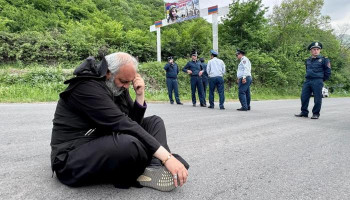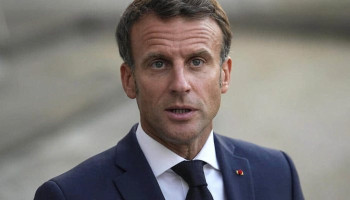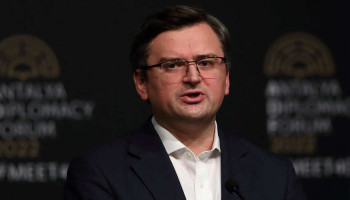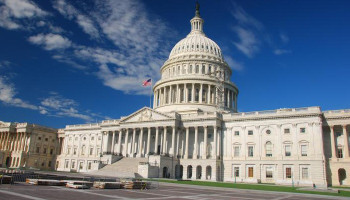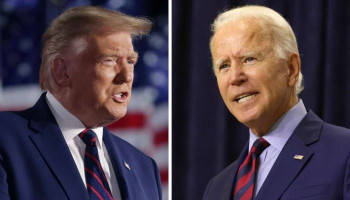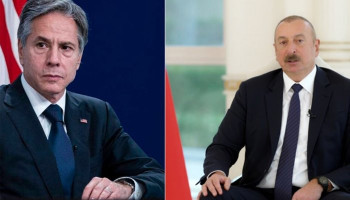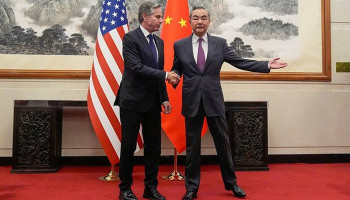Germany Weighs Push for European Sanctions Against Russia Over Syria Behavior
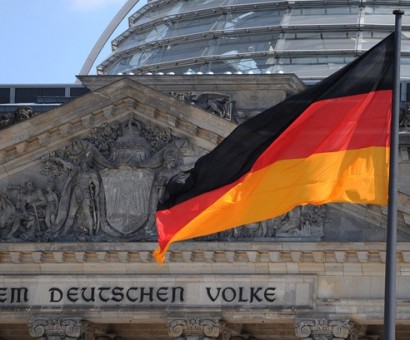 The German government is considering a push for European sanctions against Russia in response to its behavior in Syria, a person familiar with the German deliberations said on Wednesday, signaling that Europe is seeking new ways to pressure Moscow to quell the violence there. Chancellor Angela Merkel’s government, the person said, is examining ways to push Moscow to change course in Syria, where Russian warplanes have supported Syrian government forces in a siege of rebel-held areas in the city of Aleppo that Western leaders are calling an increasingly grave humanitarian crisis. German and U.S. officials have said Russia is behind some of the bombardment of hospitals and other civilian installations in Aleppo. Russia has denied targeting civilians or populated areas. One of the instruments the German government is considering to curb the Russian actions, the person said, is implementing new European Union economic sanctions against Russia. Two years ago, Ms. Merkel—the EU’s most influential leader—corralled the bloc’s 28 countries to impose joint sanctions against Russia over its military intervention in Ukraine. The deliberations among German officials on possible sanctions are in their early stages, and it isn’t clear how broadly Ms. Merkel’s junior coalition partners—the center-left Social Democrats—would support them. But they are among the first signs that Europe, frustrated by Russia’s actions in Syria and fearful of a worsening of the refugee crisis, could swing to a tougher line on Russia in the coming weeks. Senior diplomats from the EU, Germany, Italy, the U.S., and the U.K. huddled in Berlin on Wednesday evening to discuss the Syria crisis. German Foreign Minister Frank-Walter Steinmeier, U.S. Secretary of State John Kerry, and other top diplomats held talks on Syria in Brussels earlier in the day. The U.S. broke off discussions with Russia on Monday as Mr. Kerry called on Russian and Syrian air forces to be removed from the skies over Aleppo, the Syrian city where hundreds of civilians have died in recent days in an intense aerial bombardment. Officials in the U.S. are deeply divided over the efficacy of stepped-up military action in Syria. But some U.S. officials said European sanctions are likely the best means to get Russia to shift its position on the Syrian war and take a more constructive position. In the wake of the failure of the U.S-Russia cease-fire plan, diplomats are testing ideas trying to see how much support they might have in European capitals and Washington, a European official said. The growing humanitarian disaster in Aleppo, and the prospect of tens of thousands of additional displaced people has given an urgency to efforts to build a consensus around a new approach. When asked at a news conference on Wednesday about the possibility of Russian sanctions over Syria, a spokesman for the German Foreign Ministry—headed by Mr. Steinmeier, a Social Democrat—said: “At the moment, I know no one, neither in Berlin nor anywhere else, who has such proposals.” A spokesman for Ms. Merkel declined to comment on the sanctions deliberations, referring to the comment from the Foreign Ministry. The prospect of new EU sanctions on Russia would also likely run up against opposition elsewhere in the bloc, where leaders are under pressure from populist politicians to improve relations with Moscow. In recent days, European diplomats have said there is little support in the bloc for fresh sanctions on Russia.
Some officials in Washington think new European sanctions against Russia tied to its support of the Syrian regime are the best hope for changing Moscow’s tactics in Syria, according to U.S. officials. With the crisis over Aleppo deepening, Mr. Steinmeier on Wednesday said “we must look for ways to finally end this craziness, this killing, this dying.” He said it was disappointing that the U.S.-Russian talks hadn’t worked. “But this cannot put us in the position of doing nothing,” he told reporters in Brussels Hushed conversations on Aleppo occurred on the side lines of the Afghanistan donor conference in Brussels. At the end of the day of diplomacy, Federica Mogherini, the European Union foreign-policy chief, said it was critical to try and preserve and response the political process in Syria. “Only a political solution to Syria can end this war, and not a military solution,” she said. In a statement for the biggest political bloc in the European Parliament, the center-right European People’s Party, its leader, Manfred Weber, said the EU must not allow Russian President Vladimir Putin to continue the Aleppo attacks with impunity. Mr. Weber said he didn’t believe the EU should approve the Nord Stream 2 project, a Russian natural-gas pipeline that is supported by Germany but strongly opposed by the U.S., “as long as Putin is shelling civilians.” The U.S.-Russia talks became the main hope for political progress to end the Syrian war, which has lasted more than 5½ years and killed hundreds of thousands. Under the failed cease-fire effort, the U.S. promised to provide targeting information to Russia and would increase military cooperation if there was a period of calm on the ground and delivery of humanitarian aid. But the collapse of the talks has left both U.S. and Russian diplomats embittered, feeling the other side began undermining the agreement soon after it was signed. |











